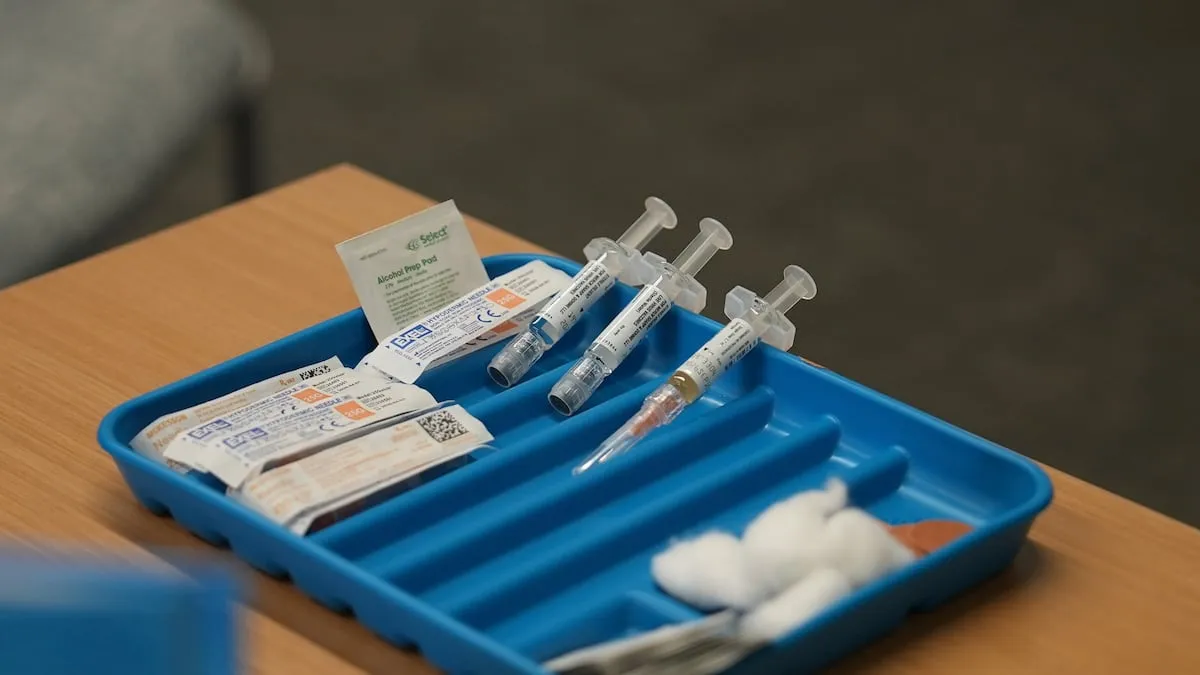
The Democratic governors of Oregon, Washington, and California have announced the formation of a new public health initiative aimed at preserving access to vaccines. This partnership, named the Western Health Alliance, will focus on developing its own immunization guidelines that are “informed by respected national medical organizations,” as stated in a press release issued by Oregon Governor Tina Kotek, Washington Governor Bob Ferguson, and California Governor Gavin Newsom.
The governors expressed serious concerns regarding the Centers for Disease Control and Prevention (CDC), stating, “The CDC has become a political tool that increasingly peddles ideology instead of science, ideology that will lead to severe health consequences. California, Oregon, and Washington will not allow the people of our states to be put at risk.” This statement reflects their commitment to ensuring public health remains a priority amid political pressures.
This announcement follows a tumultuous week for the CDC, highlighted by the dismissal of CDC Director Susan Monarez, who was appointed by former President Trump. Monarez was reportedly let go after she refused to endorse vaccine policies favored by Health and Human Services Secretary Robert F. Kennedy Jr. The upheaval resulted in the resignation of several top career scientists from the agency in protest.
In a significant op-ed published in The New York Times, nine former CDC directors from both Republican and Democratic administrations criticized Kennedy’s management of the agency. In response, Kennedy authored his own op-ed in the Wall Street Journal, asserting his commitment to “restoring the public’s trust in the CDC” and vaccine science by eliminating biases and conflicts of interest.
Dr. Sejal Hathi, head of the Oregon Health Authority, emphasized the critical role of vaccines in modern medicine, stating, “Vaccines are among the most powerful tools in modern medicine; they have indisputably saved millions of lives. However, when guidance about their use becomes inconsistent or politicized, it undermines public trust at precisely the moment we need it most.”
Recently, the FDA approved a new round of COVID-19 vaccines, but these are currently restricted to individuals classified as high-risk. The CDC’s advisory committee on immunization practices is scheduled to convene this month to discuss recommendations regarding who should receive the vaccine. This meeting is crucial for providing guidance to pharmacists and healthcare providers nationwide.
Earlier this summer, Kennedy controversially removed all 17 members from the advisory committee, appointing individuals who have criticized vaccines and disseminated misinformation. This decision has raised concerns about the integrity of vaccine guidelines.
In light of ongoing controversies, former President Donald Trump recently suggested on his social media platform, Truth Social, that pharmaceutical companies like Pfizer should validate the effectiveness of COVID-19 vaccines, citing public skepticism affecting the CDC’s credibility. In response, Pfizer issued a press release that included a link to a presentation from May detailing its vaccine efficacy.
The establishment of the Western Health Alliance is not the first collaborative effort among these West Coast states regarding public health. In 2020, Oregon, Washington, and California formed the Western States Pact to review federal vaccine recommendations and coordinate pandemic restrictions. These states were among the last to lift mask mandates and have a record of responding proactively to changes in national health care policies.
As legal cases concerning abortion medications progressed through the courts, these states successfully developed their own stockpiles of mifepristone and misoprostol, further demonstrating their commitment to public health autonomy.
Despite the announcement of the Western Health Alliance, the governors provided limited details on how this new initiative would specifically influence vaccine availability. The FDA continues to hold the responsibility of approving new vaccines, while state legislatures typically determine the vaccines required for school attendance.
One potential avenue for the Western Health Alliance could be the establishment of bulk vaccine purchasing agreements, benefiting the combined population of over 50 million residents across Oregon, Washington, and California.